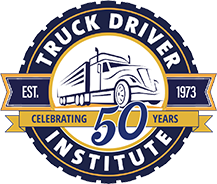How to Start a Truck Driving Business

Have you ever thought about starting your own business? Are you interested in truck driving, or have you always wondered how truck driving businesses get started? Look no further than Truck Driver Institute! Below, you’ll find all the information on how to start a truck driving business yourself. You’ll discover tips, tricks, and how-to’s on a not-so-complicated process. There’s no need to have an MBA or any other explicit certifications to get started–just an idea, a dream, and a boost from the TDI to get your truck driving business breakdown.
What Does a Truck Driving Business Involve?
What goes into a truck driving business? What does it involve, and what are all the moving parts we do and don’t see? Before creating your business, you have to decide how to register it. You can be:
- A sole proprietorship, wherein you are the sole owner and operator. You can hire other employees, but you are the sole person in charge–and the sole person with liability if there is one!
- A partnership, which is just as it sounds! You would partner with someone as a pair to run the business.
- A limited liability company (LLC) is the most common type of business new business owners register since it lets you garner both the benefits of a corporation and a partnership structure. LLCs also protect your personal assets if something goes awry with your business, such as your car, home, and anything else!
- A corporation, such as
- A C corp, which is the corporation most people know. This makes the business separate from its owners–similar to the LLC.
- An S corp allows its business owners to avoid the double taxation of C corps by allowing some profit and losses to run through the owner’s income without being taxed with corporate rates.
- A B corp is driven by profit and mission through their shareholders. The business owner is accountable to its shareholders, who are meant to direct and help drive the company with its values and actions.
- A closed corp is similar to a B corp but is not allowed to perform public trading and does not have a board of directors.
- Or a nonprofit corp, which is just as its name describes: not for profit. These are organizations geared towards charity, education, and public work for the good of society. Think Salvation Army, Habitat for Humanity, Red Cross, World Wildlife Fund, American Civil Liberties Union (ACLU), and more.
- A cooperative, compared to the others, is a business owned and operated for the possibility of using its services and whose profits are distributed to all of its members.
Once you’ve decided how to register, you can move on to the following steps: hiring drivers, managers, accountants, mechanics, and more. And once you have employees, you’ll need to find freight to haul–which is typically what fleet managers are for. Regular events in the truck driving business involve driving, of course, but also maintaining trucks, ensuring profits are coming in enough to pay all of your employees, ensuring business assets are protected, ensuring all codes and laws are upheld, and more.
Who Works in the Truck Driving Business?
Of course, the truck driving business has truck drivers, but many other positions keep any truck driving business afloat!
- The truck drivers who drive and transport the freight
- The mechanics who keep the trucks up and running
- The driver manager, who manages the drivers and assigns the freights
- The fleet manager, who finds the freights that the driver manager assigns
- The dispatcher, who communicates before, during, and after with drivers, managers, and anyone else to keep trucking trips going smoothly
- Upper management, who handles the back end of the business and makes larger-scale decisions to keep the company running
- The owner/general manager, who manages groups of employees and implements decisions made by upper management–and if they’re the owner, the one who makes the ultimate decisions (depending on how the business is registered and structured!)
First Steps
The first step when creating your own business is to figure out what exactly your goal is. How big do you want your company? What areas do you want to serve? How many employees do you want? Do you want to be the sole owner/proprietor? Do you also want to teach others how to drive trucks? Do you want to be a local truck driving business, multi-state, or cross-country?
Once you’ve figured out the answers to these questions, you can decide which type of business you’d like to register as (corporation, LLC, partnership, etc). Once you’ve registered, you’ll be able to start hiring! And once you have employees under your wing, anything can happen!
Truck Driving Business Expenses
Truck driving can also be an expensive business! You have to pay for the following:
- The truck beds for the truck drivers to even drive,
- The trailers that haul the freight,
- Any and all employees for their work,
- Business taxes,
- Driving tolls,
- Gas for the diesel trucks,
- Insurance for the truck drivers, employees, and any other possible liabilities that insurance policies can cover
- Lodging for truck drivers and other employees if their trucks cannot house them,
- Licenses and other permits,
- And miscellaneous expenses as all businesses accrue, such as accidents and other unexpected expenses
Laws, Rules, and Regulations of Truck Driving
Truck driving has its laws and rules, in addition to being required to follow the usual rules and regulations of the road that noncommercial drivers must follow. Commercial trucks need to be inspected yearly in what’s called “Roadcheck,” which the Department of Transportation (DOT) hosts and regulates, in addition to regular maintenance and upkeep that truck driving business’s mechanics are responsible for.
There are also many laws regarding how often and for how many hours truck drivers can work at a time, the type of freight and the freight truck drivers can transport, and more.
Want to Become a Truck Driving Business Owner?
Are you looking into how to start a truck driving business or just curious about the truck driving community? Look no further than TDI! Contact us today to learn more about how you can become a truck driver!
Frequently Asked Questions About Starting a Trucking Business
What do I need to do to start my own trucking business?
To start a trucking business, follow these steps:
- Write a comprehensive business plan.
- Obtain a Commercial Driver’s License (CDL).
- Register your business with the appropriate authorities.
- Acquire necessary business licenses, permits, and insurance.
- Choose and procure the right equipment.
- Secure startup funding to cover initial expenses.
Is owning a truck business profitable?
Owning a trucking business can be profitable, with average net profit margins ranging between 2.5% and 6%. Success depends on effective management andan understanding of the industry’s financial aspects.
What is the best trucking business to start?
Some promising trucking business ideas include:
- Courier or delivery services.
- Waste removal.
- Car transportation.
- Construction hauling.
- Junk removals.
- Snow plow services.
- Oversized load transportation.
- Operating a semi-truck driving school.
How do I start a trucking business with little money?
To start a trucking business on a tight budget:
- Explore commercial truck loans for necessary funding.
- Consider renting equipment to reduce upfront costs.
- Look into lease-to-own options for vehicles.
- Purchase used trucks and equipment to save money.
- Ensure you have a CDL and complete all required paperwork.
- Obtain necessary business insurance.
Get Started
Get your Class A CDL in our friendly, supportive CDL training program. TRAIN with experienced instructors – multiple good-paying, secure job choices with benefits available for eligible graduates. EARN $700 – $1000+ / week to start as a truck driver. Get started today by filling out the form below. We look forward to hearing from you!



